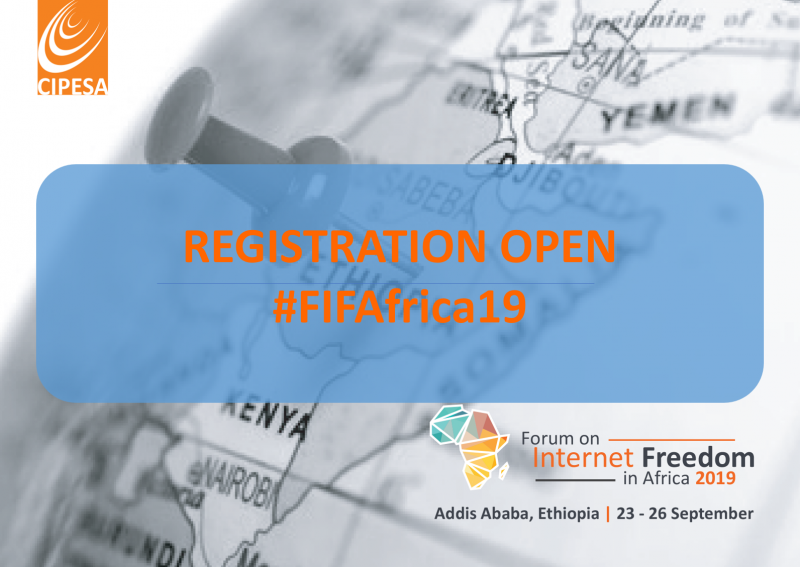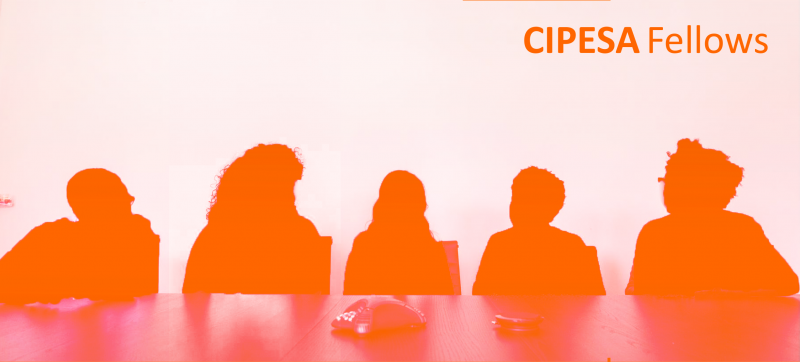By Jimmy Kainja |
In the last three years, the Malawi government has passed a lot of legislation, among these, is the National Registration and Identification System (NRIS), which according to the National Registration Bureau, is aimed at addressing the lack of universal and compulsory registration – the NRIS allows Malawians to have a national ID.
According to UNDP, one of the main funders of the exercise, 9 million Malawians have registered as of October 2019. This shows that Malawians have generally welcomed the exercise. Meanwhile, the registration in on going all District Offices where anyone turning 16 years can register and have their ID card issued.
Reasons for the general acceptability of the ID registration differ and in absence of any survey it is difficult to generalise the reasons but it can be speculated that among the reasons is that the majority of Malawians lacked any form of ID to do daily transactions. Majority Malawians do not have a passport or driver’s license and yet advance in technology, mobile banking for example, has increased demand for IDs in the country.
Following the NRIS exercise, the national ID has become increasingly become the only form of identification for most public transactions and registrations. In 2018 Malawi government through its telecoms regulator, MACRA, rolled out mandatory SIM Card registration, this is provided for in PART XI of Communications Act, 2016. The voter registration for 2019 tripartite elections required the national ID as a form of identification; and now commercial banks in the country have rolled out what they are calling “know your customer” (KYC) exercise, in which clients have to update their personal information with the banks. This time the banks are only accepting the national ID as a form of identity for Malawians, and passport for none Malawians.
This means that in a very short space of time Malawians have given away a lot of their personal data to both private and public institutions. All the data is tied to one’s national ID. This includes our communication data through our SIM Card enabled communication – internet, text messages and voice calls. But who how safe is this personal data? During the voter registration exercise did we not hear of Malawi Electoral Commission found abandoned in Mozambique? How do we ensure that our personal data is safe? How can we be sure that no third parties have access to our personal data? Who should be held accountable in case of any data breach?
These are legitimate questions, especially as any breach of personal data has implications on personal privacy. Privacy is inviolable right and it is constitutionally provided for under article 21 of Malawi constitution. Often people argue that you should not worry about privacy if you have nothing to hide. Yet, privacy does not mean that you have something to hide.
Journalist, Glenn Greenwald observes that privacy is important because we all need places where we can go to explore the issue without the judgmental eyes of other people being cast upon us. He argues that their people have all kinds of things they want to keep a secret that has nothing to do with criminality. He adds:
“only in a realm where we’re not being watched can we really test the limits of who we want to be. It’s really in the private realm where dissent, creativity and personal exploration lie… When we think we’re being watched, we make behaviour choices that we believe other people want us to make … it’s a natural human desire to avoid societal condemnation. That’s why every state loves surveillance — it breeds a conformist population.”
In the wake of mass personal data collection, Malawi needs personal data protection legislation, and this legislation should have been in place before the NRIS and what has followed that exercise. Data protection is important in order to prevent third parties from accessing personal data and also stopping the authorities abusing personal data they collected in good faith.
Personal data protection is crucial for freedom of choice and freedom of expression. People are unable to express themselves freely in the presence of watchful eye on everything that you are doing, browsing on the Internet for example. Inevitably, this has a chilling effect on activists, human rights defenders and other vulnerable communities as these groups can easily be targeted by both state and non-state actors.
The mass collection of personal data in the absence of data protection law should be of concern to all Malawians as it has the capacity to allow state surveillance. Furthermore, the mandatory SIM card registration in the absence of data protection laws means that our private communication, online and offline can easily be violated by both state and non-state actors. As with the mandatory SIM card registration, governments usually use security to introduce laws and policies. But you cannot protect people on one hand while violating other rights and freedoms on the other. Security and civil liberties can and do coexist and it is the obligation of the state to balance the two.
*Note: this article is informed by Internet freedom and digital rights training for CSOs I coordinated and co-facilitated in Lilongwe (30-31st July 2019) on behalf of The Collaboration on International ICT Policy in East and Southern Africa (CIPESA).
This article was originally published in The Nation
An Assessment of Consumer Rights Protection in Nigeria and Uganda
Tomiwa Ilori |
Digitalisation has become integral in almost every facet of society, business, education, politics and health. Day-to-day interactions including commercial interactions are increasingly shaped by various forms of technologies and are often accompanied by the release of some form of personal data. However, due to the dynamic nature of the technologies that power e-commerce, laws in many jurisdictions are often playing catch-up with these changes. This includes the laws meant to ensure the protection of consumers that engage in online commercial transactions.
Globally, 101 countries out of a total of 195 currently have some form of online consumer protection legislation. While several of these laws did not anticipate the extent of the digitalisation, many of the rights and protection provided for are in line with international instruments for protection online. Some of these international policy frameworks include the Organization for Economic Co-operation and Development Guidelines for Consumer Protection in E-commerce (OECD), the United Nations Commission on International Trade Law Model Law on E-Commerce (UNCITRAL), the United Nations Guideline for Consumer Protection (UNGCP) and the International Consumer Protection and Enforcement Network (ICPEN).
Across board, these instruments recommend for countries to implement regulatory frameworks for the benefit of online users in the global digital economy, including transparency and effective protection, online disclosures, protection of consumers’ personal data by vendors. Meanwhile, on May 25, 2018, the European Union’s General Data Protection Regulation (GDPR) came into effect, forcing African countries, especially those with strong trade ties to the EU, to work towards prioritising data privacy and to more decisively meet their duties and obligations to ensure compliance with the Regulation.
However, of the 54 countries in Africa, only 20 have laws which pertain to online consumer rights and electronic transactions, while six have draft laws.
Uganda enacted laws on electronic transactions, electronic signatures and computer misuse in 2011. However, gaps remain in adequately securing online consumers rights. Part IV of the Electronic Transaction Act of 2011 (the ETA) provides for consumer protection, with disclosure obligations of online service providers outlined under Section 24[3] [S4] . Among the information that should be accessible to consumers are description of goods and services offered; full price including taxes and transport fees; mode of payment; applicable guarantees; delivery timelines; code of conduct; as well as the security procedures and privacy policy, among others. Sections 24(3) and 25 provide for the right of cancellation and refund.
The ETA is light on offences and heavy on directives. The most notable offence provided for by the Act is where a sender of commercial information is found guilty of sending unsolicited messages to a consumer as provided for under Section 26 of the Act. Where it was sent without the consumer’s consent, such sender is liable for a fine of 1.44 million Ugandan Shillings (USD 384) or three years in jail or both. Where it is sent after the consumer has opted out of receiving such information, such sender is fined for 2.4 million Ugandan Shillings (USD 658) or a jail term of five years or both.
There is currently no formal international law position on these offences provisions with respect to consumer rights online. What exists in international instruments already mentioned above are guidelines which do not carry sanctions. However, in the United States, a sender found guilty of the offences of Section 26 of the ETA will be fined 59.3 million Ugandan Shillings (USD 16,247) for each email sent under the Controlling the Assault of Non-Solicited Pornography And Marketing Act of 2003 (the CAN-SPAM Act).
Meanwhile, Uganda’s cybercrimes legislation – the Computer Misuse Act 2011 – is relevant to consumer protection under Section 19. The section provides for an offense of electronic fraud which is occasioned by deliberate act of unfair or unlawful gain through a computer system. Under Section 12, the man-in-the-middle attacks could be said to be an offence which criminalises unauthorised use of a computer. If found guilty, an intruder is liable for a fine of 4.8 million Ugandan Shillings or ten years imprisonment or both. Sections 17 and 19 provide for punishments for unauthorised disclosure of access codes and electronic fraud respectively. A person found guilty is liable for a fine of 7.2 million Ugandan Shillings or a jail term of 15 years or both in both instances.
Recently, Nigeria also enacted a legal framework that protects consumers’ rights online. Passed in February 2019, the Federal Competition and Consumer Protection Act has the protection of the consumer’s welfare as one of its core objectives. The objectives of the Act will be implemented by a Federal Competition and Consumer Protection Commission and enforced by the Competition and Consumer Protection Tribunal.
Similar to the case of Uganda, Part XV of the 2019 Act provides for consumer rights ranging from but not limited to the right to information in plain and understandable language, right to disclosure of prices of goods and services, right to proper labelling and trade description, right to disclosure of re-conditioned or second hand goods; right to cancel; right to examine goods; right to return goods and implied warranty as to quality. Whereas the act does not explicitly refer to online products and services, the above provisions are applicable for both online and offline protection of consumer rights in Nigeria.
In addition to the recent substantive law, in early 2018, the Consumer Protection Council established by the Consumer Protection Council Act of 2004 developed some principles that attempted to address issues of e-commerce in Nigeria including adding clarifications to online transactions. The principles also recognised that the country’s digital economy legal framework is still developing. While these principles are largely consumer-facing in terms of digital commerce in Nigeria, they admit that Nigeria requires a more concrete law to establish a consumer rights online regime.
What can be seen in the nature of online consumer rights in Nigeria and Uganda is that while Nigeria has 103 million internet users (July 2018) and an internet penetration just over 50% in comparison to Uganda’s 18 million users (June 2018) and internet penetration of 35%, Uganda may be said to be fast catching up with consumer protection laws even though enforcement might be slow while Nigeria has just provided a conducive legal environment for its digital economy landscape.
An analysis of Uganda and Nigeria’s consumer online protection regulatory efforts shows that despite the teeming growth of internet users and a legal framework in Nigeria, these developments have not yielded the necessary measures to secure Nigerian consumers in the digital age. In Uganda, there is a link between the Social Media Tax introduced in July 2018 by the government and the decrease in the number of internet users in the country. This in effect, negatively impacts and reduces consumer participation in online consumer protection regulation.
With astronomical growth in mobile payments and electronic transactions in both Uganda and Nigeria which are directly contributing to boosting the digital economy, both governments need to support more policies that address the complexity of regulatory technology while paying attention to consumer rights and protection.
Inaugural Winners of the Africa Digital Rights Fund Announced
Announcement |
The Collaboration on International ICT Policy for East and Southern Africa (CIPESA) is pleased to announce the winners of the first round of the Africa Digital Rights Fund (ADRF). A total of USD 65,000 has been awarded to 10 initiatives that will advance digital rights in 16 African countries – Algeria, Burundi, Egypt, Ethiopia, Gambia, Mozambique, Namibia, Nigeria, Sierra Leone, Senegal, South Sudan, Tanzania, Tunisia, Uganda, Zambia and Zimbabwe.
Launched in April 2019, the ADRF is aimed at growing the number of individuals and organisations that work to advance digital rights in Africa, amidst rising digital rights violations such as arrests and intimidation of internet users, network disruptions, and a proliferation of laws and regulations that hamper internet access and affordability, and undermine the potential of digital technologies to catalyse free expression, civic participation, and innovation.
Although it is still early days, the Fund has received profuse interest from across the continent, with several worthy initiatives proposing projects including in countries with numerous digital rights challenges but little effort to address them.
According to Ashnah Kalemera, the CIPESA Programmes Manager, the first call for proposals attracted more than 150 applications from 30 countries. “Digital rights advocacy, digital safety and security skills building, innovating for social enterprises’ efficiency, litigating for digital rights, and empowerment for marginalised communities, were among the prevalent lines of work proposed. There were few proposals in the area of research, and much fewer on engagement in legislative processes, despite the ongoing enactment of often retrogressive laws and regulations governing digital rights,” she said.
The applicants were assessed by a panel of experts based on the following attributes:
- The applicant’s experience in advancing digital rights/track record on similar work;
- Demonstrated need for the project including relevance to described context and priorities of the Fund;
- Eligibility in terms of geographic coverage, proposed activities, duration, and evidence of the applicant’s formal registration or operations;
- Demonstration of innovation with regards to approach, feasibility of deliverables and timelines, and potential impact of the intervention;
- Budget feasibility; and
- Diversity considerations.
The review panel consisted of three internal CIPESA programme staff and four external experts with extensive experience in the digital rights field. The external reviewers were Neil Blazevic -Technology Manager at DefendDefenders (formerly East and Horn of Africa Human Rights Defenders Project), Sadibou Sow – West and Central Africa Regional Technology Advisor of Amnesty International, Dr. Edgar Napoleon Asiimwe – Research Manager at the Swedish Programme for ICT in Developing Regions (Spider), and Koliwe Majama – Organiser of the Africa School of Internet Governance at the Association for Progressive Communications (APC).
The winners of the ADRF’s first call are:
1. Access for All – South Sudan
Access for All will build the advocacy and digital security capacity of South Sudanese women refugees and human rights defenders. These engagements, which will be conducted in Arabic and English, will explore current human rights defenders’ security/ protection concerns in South Sudan, and the mechanisms to address them.
2. African Human Rights Network (AHRN) Foundation – Tanzania
The project will strengthen the capacity of human rights defenders (HRDs) and their organisations on digital security and provide them with essential tools. A total of 60 Tanzania HRDs will be provided with training and exchange opportunities to reduce digital security risks. The project complements the activities of Shelter City Dar es Salaam which is a regional temporary relocation program for HRDs in the Great Lakes region.
3. Burundi Youths Training Centre – Burundi
The project will build the capacity of human rights defenders and media organisations in digital rights advocacy. The engaged organisations will be mentored to develop and implement strategic advocacy campaigns for digital rights, including the right to privacy and personal data protection in Burundi.
4. Centre for Human Rights, University of Pretoria – South Africa
The centre will document and analyse threats and mounting pushbacks against civil society in the digital age in Egypt, Sierra Leone, Uganda, and Zambia. Leveraging its network of former graduates and local partner tertiary institutions, the centre will map the legal and digital threats to civil society in the focus countries in order for stakeholders to have full evidence-based knowledge of these threats and how to navigate them. The bilingual (French and English) research outputs will feed into the centre’s Master’s programme curriculum module on civil society studies in Africa and short courses on human rights and good governance.
5. Freedom of Expression Hub (FoE Hub) – Uganda
In collaboration with the Uganda Law Society, the Freedom of Expression Hub will conduct digital literacy and litigation surgeries for lawyers and journalists in northern Uganda’s West Nile sub-region on emerging digital rights issues affecting freedom of expression, access to information and media rights. The surgeries aim to promote collaboration and rapid response to digital rights violations especially through courts of law. Furthermore, the Hub will work on creating a database of advocates who can adequately respond to digital rights cases in the sub-region.
6. Global Voices – Sub-Saharan Africa, Middle East and North Africa
As part of its wider Advox programme, Global Voices will document experiences of online mis/disinformation and the impact of internet shutdowns on citizens’ rights to freedom of expression and access to information during elections and protests in seven countries – Algeria, Ethiopia, Mozambique, Nigeria, Tunisia, Uganda and Zimbabwe. Through translation and targeted outreach, the project will contribute African perspectives to the global debate on mis/disinformation and shutdowns, and train local writers to improve their digital rights reporting skills.
7. Internet Society (ISOC) Namibia Chapter – Namibia
In the run up to the November 2019 elections, ISOC Namibia will work to build the capacity of journalists and editors to fact-check misinformation. It will also work with women parliamentarians, political activists and various other actors in a campaign to tackle politically motivated-gender based violence online.
8. Jonction – Senegal
Jonction will implement advocacy and awareness creation campaigns among state, private sector and civil society actors in Senegal to foster an enabling environment for freedom of expression, privacy and data protection online.
9. Kuza STEAM Generation (KsGEN) and Centre for Youth Empowerment and Leadership (CYEL) – Tanzania
The grant will be used to organise “Schools” on Internet Governance (IG) and digital rights through which various stakeholders will be trained and mentored to lead IG-related discussions at national and regional level. One of the schools will specifically target girls and women in Arusha so as to increase Tanzanian women’s participation in internet governance
10. YMCA Computer Training Centre and Digital Studio – The Gambia
Building on its youth-empowerment initiatives, YMCA Gambia will undertake a sensitisation drive on cyber-bullying and online safety among youths as a means of combating harassment and online abuse of women and girls.
Register for the Forum on Internet Freedom in Africa 2019 (#FIFAfrica19)
FIFAfrica |
On September 23-26, 2019 the Collaboration on International ICT Policy for East and Southern Africa (CIPESA) will host the sixth Forum on Internet Freedom in Africa (#FIFAfrica). This year, FIFAfrica will take place in Addis Ababa, Ethiopia where we look forward to convening a wide spectrum of stakeholders from across the internet governance and online rights arenas in Africa and beyond to deliberate on gaps, concerns and opportunities for advancing privacy, free expression, non-discrimination and the free flow of information online.

In its inaugural years, the Forum took place in Kampala, Uganda (2014 – 2016). Since then, FIFAfrica’s expanding footprint has seen it being hosted in Johannesburg, South Africa in partnership with the Association for Progressive Communications (APC) in 2017 and in Accra, Ghana in partnership with the Media Foundation West Africa (MFWA) in 2018. This year, we will host pre-events (by invitation) will be on 23 and 24 September while the main Forum event will take place on 25 and 26 September.
Register for FIFAfrica19
In the lead up to the forum is the invitation of ideas on what should form the basis of panel discussions, exhibitions, workshops and lightning talks at the event. We welcome proposals which can be completed as part of the registration form.
Please note the below important dates related to participation at the Forum. Submissions close at midnight (East Africa Time) of the stated dates:
— The closing date for registration to attend is September 6, 2019.
— Session proposals will be accepted till July 31, 2019
— Applications for travel support will be accepted till July 31, 2019
— Successful travel support applicants will be directly notified by August 30, 2019.
Register for FIFAfrica19
Two Years of CIPESA’s Fellowship Programme
Fellows |
In 2017, the Collaboration on International ICT Policy for East and Southern Africa (CIPESA) introduced its fellowship programme. The media fellowship aims to raise media understanding of, and its effective and consistent reporting of Information and Communication Technologies (ICT) -for-democracy issues in East Africa towards increased quality and regularity of reporting, as well as a greater diversity of voices, in coverage related to ICT, democracy and human rights.
The academia fellowship aims to nurture university students’ and early career academics’ understanding of ICT for governance, human rights and development. By engaging members of the academic community, the programme benefits partners of the ICT4Democracy in East Africa network through placements of individuals with skills in fields such as ICT, mass communication, and informatics, within the partner organisations. Ultimately, the programme aims to grow links between the academic community and practitioners in the ICT field for mutual research, learning and knowledge exchange, so as to create the next generation of ICT for democracy and ICT for human rights champions and researchers.
Since its launch, six fellows representing east and western Africa, as well as Asia have participated in the programme, with a wide range of outputs including commentaries, broadcast content, multimedia content and journal articles. The learning and experiences of the fellows so far have informed CIPESA’s contributions to the to the curriculum review and development for a Masters in eGovernance programme at Makerere University. Furthermore, CIPESA’s engagements with the Makerere University Development Informatics Research Group on the role academics should play to contribute to the national and global development agenda, including through producing actionable knowledge, creating closer linkages with development practitioners and seeking ways to influence policy making.

Media Fellow Emmanuel Kajubu assessed the performance of elected leaders in Western Uganda, a year after they were voted into office. Many of them had committed to improve service delivery in education and health if they were elected.
Kajubu focussed on the districts of Kabarole, Kasese, Kyenjojo, Kyegegwa, Ntoroko and Kamwenge, which form the Rwenzori region, and worked in collaboration with ICT4Democracy in East Africa partner Toro Development Network (ToroDev).
In interviews with the electorate, some members of the community said that after being elected, the leaders had not returned to consult them on issues affecting the community or fulfilled pledges made during campaigns. In response, many of the elected officials argued that they were constrained to carry out monitoring and supervision of government projects due to lack of funds.
His stories were published on the Uganda Radio Network website, an online news agency, and on the Toro Development Network website.
- Residents want local leaders assessed.
- Voters Demand mid-term assessment of leaders
- A year in office, leaders yet to Fulfill Pledges
He also developed an eight-minute radio feature which summarised the views of the electorate and local leaders. It was broadcast on Hits FM Radio in Fort Portal on October 22, 2017. The radio station works with ToroDev and serves as a platform for the community in Western Uganda to air out issues affecting them and also for leaders to be accountable to the community.

Media Fellow Lilian Kaivilu is a multimedia journalist based in Nairobi, Kenya, with a keen focus on Innovations, Gender, Health, Business and Development stories.
Lilian works as a writing consultant with the World Bank Group and is also the founder of Impacthub Media, an online media platform that focuses on Development, Health and Innovation stories from Kenyan communities.
She has previously worked as a reporter for the Global Press Journal, Kenya News Desk. She has also worked as a Features reporter at Mediamax Network Limited (People Daily Newspaper), and as a sub editor at Shrend Publishers and Supplies Limited.
Lilian is a Bloomberg Media Initiative fellow (Strathmore Business School), Safaricom Business Journalism fellow (Strathmore Business School), Kenya Institute of Mass
Communication Journalism Graduate and a Linguistics, Media and Communication graduate from Moi University. In addition, she is currently taking Digital Capacity Building training by the World Association of Newspapers and News Publishers (WAN-IFRA). She is also pursuing the WAN-IFRA’s Media Management course.
For her fellowship tenure, in the run up to Kenya’s 2016 elections, Lillian covered stories on ICT for rural access to information, how ICT is transforming Nairobi’s Kibera slum, challenges to political participation by rural populations and local innovations in maternal health care.

Marvin Bwire, another fellow from Nairobi, Kenya worked to profile and raising awareness about female genital mutilation in Meru and empowering women in politics in Kenya through video. He worked with the Kenya Human Rights Commission (KHRC), a member of the ICT4Democracy in East Africa Network.
Marvin is a film production graduate from the Multimedia University of Kenya and a practicing journalist. His work is built upon the pillar of the right to information for all and the use of ICT as an avenue to provide information to the public.

Wanjiru Mburu is an ICT4D researcher who is passionate about using ICT to bridge the healthcare digital divide in developing countries.
She holds a bachelors degree and masters degree both in Computer Science, and is currently a Ph.D. student at the ICT4D center, University of Cape Town. Her research interests are mainly in human-computer interaction for development (HCI4D) and mobile health fields.
For her fellowship, Wanjiru worked with the Kenya Medical Research Institute (KEMRI) and African Population and Health Research Centre (APHRC), to research how ICT platforms can be used to educate mothers of preterm infants on their health rights in Kenya. A journal article from this fellowship was accepted in the 6th International Conference on Mobile Communication Technology for Development (M4D2018) conference proceedings which was held in Kampala, Uganda in December 2018.
Sotheavin Doch holds a bachelor degree in Environmental Science and a masters degree in Disaster Risk and Resilience. She was a Research Assistant for the BBC Media Action in Cambodia and is a Research and Partnership Officer with Open Development Cambodia (ODC). She supports ODC’s team to promote and teach use of ODC’s site as an open data platform. She organises training for citizens citizen journalists local authorities and others stakeholders to access information of public services’ services/fee digitized on ODC’s website and also conducts training on ‘data-driven journalism’ to journalist students in Cambodia to generate and analyse data into their news reports to develop a new way of telling stories with data or evidence.
Sotheavin joined CIPESA as part of the South South Media Lab (SSMLab) in-residence program which aims at increasing networking and collaboration within the media sector between South-East Asia and East Africa. The residencies took place during November and December 2018.
As part of the fellowship, Sotheavin worked on the use of open data and open source technology to promote public service delivery. She also conducted a training for journalists on data-driven reporting methods, through engagements and needs assessments with ICT4Democarcy Network partners CIPESA, Women of Uganda Network (WOUGNET) and Transparency International (TI) Uganda.
Tomiwa Ilori was hosted as a fellow by CIPESA as part of his Masters study in Human Rights and Democratisation in Africa at the University of Pretoria. He undertook research related to his study in the area of constitutional law.
He contributed to CIPESA’s policy analysis work by researching and producing commentaries on How Nigeria and Uganda are Faring on the Right to Information and consumer protection.
Tomiwa has experience working on digital rights in Nigeria and was also in charge of ongoing strategic litigation suits with respect to digital rights infringement in Nigeria by Paradigm Initiative. He is the coordinator of the NetRights Africa Coalition.





